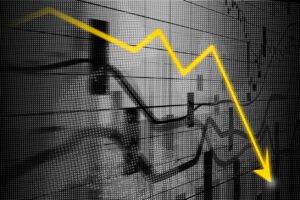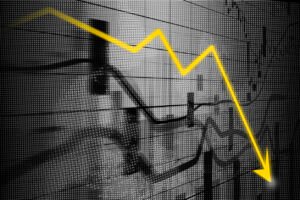Posted by Colin Lambert. Last updated: July 11, 2024
June was a tough month for one of the recent stars of the hedge fund world, Macro, with indexation and analysis firm HFR reporting its HFRI Macro (Total) Index falling 1.65%, its second successive monthly decline after a run of strong results.
The losses were driven by quantitative, trend-following CTA strategies and fundamental Commodity exposures, which suffered as geopolitical election risk and global interest rate uncertainty surged. Within the sub-strategies, the losses were led by the HFRI Macro: Commodity Index, which fell 4.1%, while the HFRI Macro: Systematic Diversified Index declined 1.8 %. Despite the sub-par performance over the last two months, the Macro (Total) Index was the second-leading area of strategy performance in the first half of the year, gaining 5.1%.
Macro’s loss was Relative Value Arbitrage and Equity Hedge’s gains, meaning the HFRI Fund Weighted Composite Index (FWC) was only down 0.2% in June, posting only the second decline in the last eight months, according to HFR.
The HFRI Relative Value Arbitrage Index (Total) Index gained 0.4%, while the HFRI Equity Hedge (Total) Index added 0.3%. HFR says a fluctuating political environment dampened the performance of several hedge fund strategies during June leading to overall mixed performance. “In a year of unprecedented national elections with countries comprising half the world’s population heading to the polls in 2024, sharp swings in political fortune and leadership have already been returned in many key democratic nations,” it observes. “Destabilising fragmentation of political parties, shock election results (most recently in the French National Assembly elections), and the creeping polarisation of voters into opposing right-wing and left-wing camps have become a pattern in European and US politics throughout H1 2024.”
Hedge fund performance dispersion declined again in June, as the top decile of the HFRI FWC constituents advanced by an average of +5.4%, while the bottom decile fell by an average of -5.7%, representing a top/bottom dispersion of 11.1%. By comparison, the top/bottom performance dispersion in May was 12.4%, and in the trailing 12 months ending June 2024, the top decile of FWC constituents gained +39.1%, while the bottom decile declined -11.9%, representing a top/bottom dispersion of 51.0%. Approximately 55 percent of hedge funds produced positive performance in June, HFR says.
Fixed income-based, interest rate-sensitive strategies led industry gains in June as tension and speculation increased on second half rates cuts, with the ECB and Bank of Japan cutting rates despite persistent inflation, while investors positioned for US Federal Reserve interest rate cuts. The HFRI Relative Value (Total) Index gained an estimated 0.4%, increasing its H1 return to +3.8%.
“Hedge funds posted mixed performance in June as election and geopolitical risks continued to surge, with fluid policy transitions adding to global interest rate and inflation uncertainty, with leadership from Relative Value credit and Equity Hedge strategies,” says Kenneth Heinz, president of HFR. “Uncorrelated Macro hedge funds, which led strategy performance in the first four months of the year, posted its second consecutive monthly decline to end H1 on weakness in commodity and trend following CTA exposures.
“Unprecedented election and geopolitical risk continue to drive positioning for hedge funds, accentuating an already unstable interest rate and inflation environment with these adding to dislocation risk associated with ongoing, active and potential military conflicts,” he continues. “Despite ongoing strength in the US large cap Technology sector, the performance of global currency, commodity and bond markets continues to be volatile and impacted by fluid, and potentially destabilising, policy changes and dislocations.
“As these powerful trends evolve in H2, institutions interested in accessing specialised opportunities created by this uncertainty, are likely to increase exposure to hedge funds which have demonstrated their strategy’s robustness of navigating these building and evolving risks over recent months and years,” he concludes.

